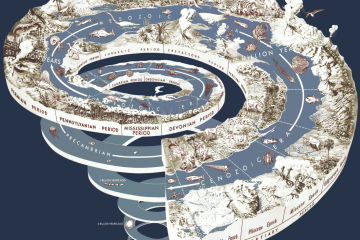Germany, Antisemitism, and Blackness
By Sa’ed Atshan and Katharina Galor

Just recently, Germany has made the significant step in acknowledging its colonial genocide in Namibia. It has stunned the world with its generosity by promising more than one billion dollars to support development projects that will benefit the communities related to the original victims. This budget will support the country for three decades.
At the beginning of the twentieth century, German colonial forces seized the land and livestock of the Herero and Nama tribes. As the latter revolted, 75,000 were killed and others were deported to labor and concentration camps, ultimately extinguishing 80% of the Herero and half of the Nama people. Some human remains were sent to Germany for scientists’ use to establish pseudo-scientific bases for racial hierarchies. The results contributed to justifications of the Nazi genocide during the Second World War.
There is no doubt that the German compensation at present is remarkable. Yet multiple criticisms have been voiced. Among those, leaders of the Herero and Nama tribes protested the lack of reparations for direct descendants. Additional criticism in the international media concerns the fact that the development aid comes at a moment when Germany intends to expand its trade connections in the African continent, which may suggest economic interests rather than sincere moral regrets. Finally, the topic of reparation payments—the importance of which was argued on this blog—still remains unsolved.
This recent acknowledgment occurs one year after Cameroonian scholar Achille Mbembe was uninvited from his opening speech at the Ruhrtriennale Festival in Germany, which was scheduled to take place in Northrhine Westphalia in August 2020. Mbembe was publicly attacked and falsely accused of Antisemitism from leading German officials, including Lorenz Deutsch of the FDP (Liberal Party) and Felix Klein, the “Federal Government Commissioner for Jewish Life and Against Anti-semitism.” Mbembe was associated with Holocaust trivialization and relativization. Yet it must be noted that Mbembe has been explicit in his writing about the different contexts of the Holocaust and Israel/Palestine.
He was also criticized for comparing apartheid in South Africa and Israel/Palestine. In fact, Human Rights Watch and Btselem, Israel’s most respected human rights organization, have recently referred to Israel’s system against Palestinians as apartheid, which resonates with South African history. However, German public discourse often associates comparison between South Africa and Israel/Palestine as a form of Antisemitism.
The tendency to equate criticism of the Israeli state with Antisemitism is common in Germany, as we explicate in our recently published book The Moral Triangle: Germans, Israelis, Palestinians, which has been translated into German. The two contemporary political developments in Germany we have since examined, the Namibia and Mbembe affairs, have caught our attention and reveal the country’s complex relationship to its legacy of anti-Black racism. The two events have led to divergent responses in mainstream German spaces and we seek to understand what accounts for this difference in hegemonic attitudes. Our view is that it was easier for Germans to address their anti-Black racism in the Namibian context, rather than in the Mbembe affair, because the former is perceived as unrelated to the Holocaust or Israel/Palestine. Given the widespread nature of European colonialism at the time of Germany’s occupation of Namibia, Germany was not an outlier.
German exceptionalism, however, is clearly at play with regard to the Holocaust and Israel/Palestine—as these are often perceived as the most sensitive topics in contemporary German society. Anti-Black and Anti-Palestinian racism in Germany are therefore normalized in an effort to combat Antisemitism. For instance, a pattern has emerged in Germany where artists and intellectuals of color, from Palestinian and other minority backgrounds, are disinvited from public events because of their support for Palestinian human rights. We believe that the struggles against all forms of racism—including Blacks, Jews, Palestinians, and others—are inextricably linked and warrant more intersectional attention and commitments in present-day Germany. Intersectionality requires that we recognize the interconnected nature of our struggles and that all humans deserve justice and dignity. It is our hope that Germany’s engagement with Namibia can proceed along the most ethical of terms. And that Germany will extend its compassion to Israelis and Palestinians alike.
Germany has compensated with great moral consciousness for its wrongdoings and crimes committed during WWII. Germans’ direct and unconditional support for Israel, and indirectly of Israelis, is directly anchored in their recognition of their responsibility towards the victims of the Holocaust. While Germany has been supporting Palestinian refugees with humanitarian aid, primarily in the Middle East, they have been reluctant to support the Palestinian cause, refusing to recognize Palestinian suffering as related to Germany’s history and present. There are many Germans who provide us with hope, challenging the status quo, and recognizing the immorality of racial hierarchies, and the need to combat all forms of racism. Our wish is that these individual and grassroots initiatives will shape Germany’s state discourses and policies in the near future.
#
Sa’ed Atshan is (Acting) Associate Professor of Anthropology at Emory University.
Katharina Galor is the Hirschfeld Senior Lecturer in Judaic Studies at Brown University.
Counterpoint blogs may be reprinted with the following acknowledgement: “This article was published by Counterpoint Navigating Knowledge on 23 August 2021.”
The views and opinions expressed on this website, in its publications, and in comments made in response to the site and publications are those of the author(s) and do not necessarily reflect the views and opinions of Counterpoint: Navigating Knowledge, its founders, its staff, or any agent or institution affiliated with it, nor those of the institution(s) with which the author is affiliated. Counterpoint exists to promote vigorous debate within and across knowledge systems and therefore publishes a wide variety of views and opinions in the interests of open conversation and dialogue.
Photo credits: Yael Ronen’s play The Situation, performed at Berlin’s Maxim Gorki Theater. Photograph © by Ute Langkafel.



0 Comments